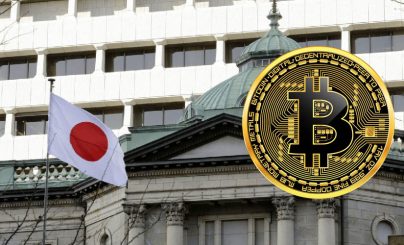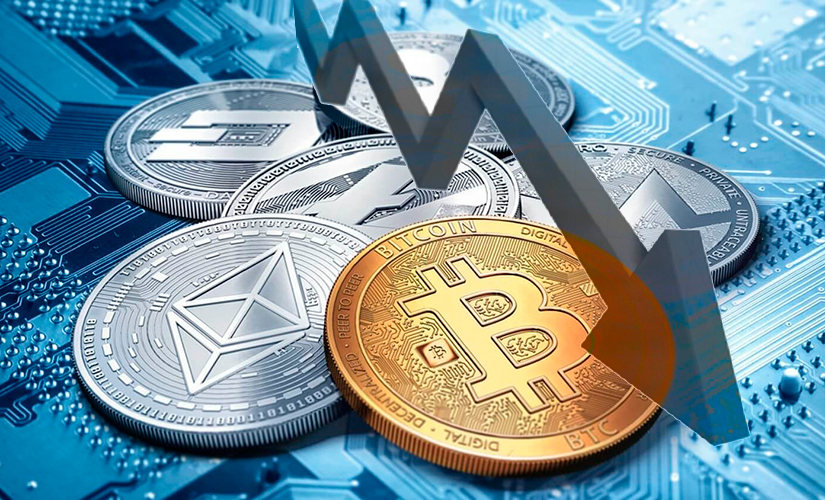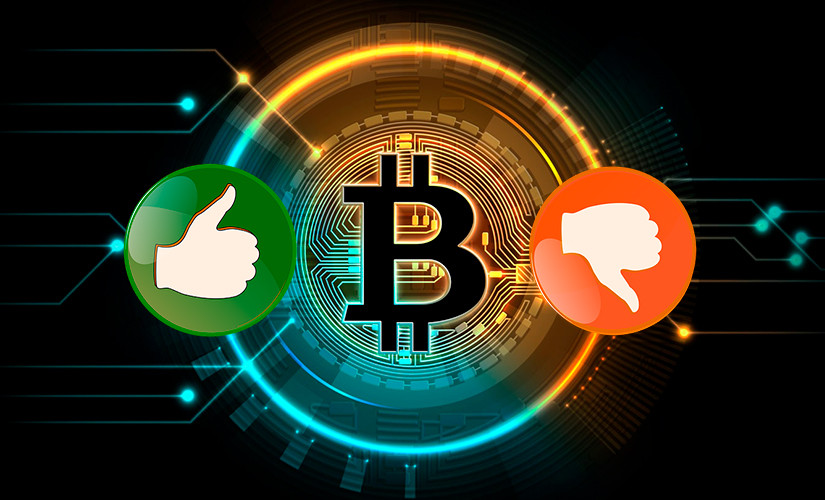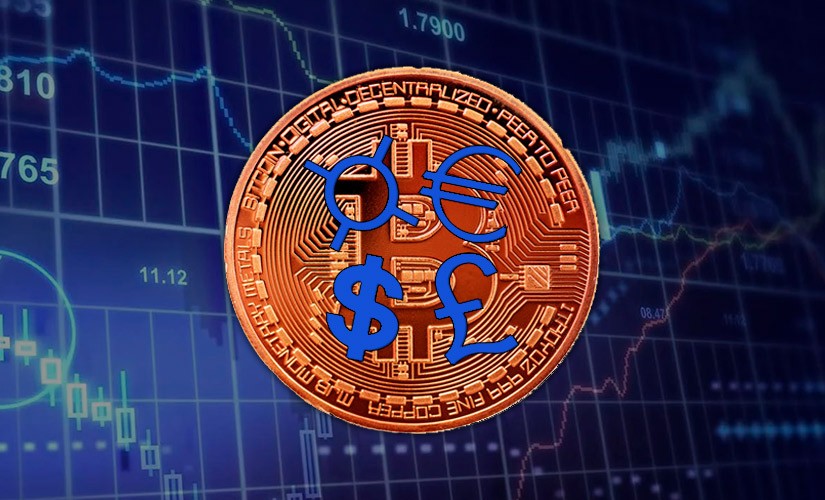Since 2018, the Japanese digital money market has been showing growth dynamics. In fact, the country was the first in the world to legally enshrine the term “cryptoasset”. In the law, the government established the requirement for mandatory registration of exchanges as service providers for digital money exchange. Regulatory consolidation of these and other terms was necessary for the regulation of Japanese cryptocurrency and the market as a whole.
Features of regulation
One of the purposes of adopting legislation is the protection of users.
In addition, the government of the country entered into the fight against money laundering and terrorist financing (AML/CFT).
To the need to introduce regulation led to the events that took place in the Japanese market of digital assets. In 2011, news was published that 850 thousand bitcoins were stolen from the Tokyo-based cryptocurrency exchange Mt.Gox. The company was shut down in April 2014. Although 200 thousand coins were later recovered, the $450 million loss made Mt.Gox bankrupt and seriously shook investors’ faith in the cryptocurrency market.
This case underscored the need to implement a regulatory protection system for Japan’s cryptocurrency users.
Following the G7 Summit in June 2015, the FATF organization published “Guidance on the Application of a Risk-Based Approach to Virtual Currencies” recommending the registration of Japanese cryptocurrency exchanges. Anti-money laundering and counter-terrorist financing requirements, including customer identification obligations on trading platform websites, became mandatory for all companies involved in the exchange of digital assets. On March 4, 2016, the Japanese Parliament submitted a draft on amendments to the Payment Services Act, Prevention of Transfer of Criminal Proceeds. After 1 year these amendments were adopted.
5020 $
bonus za nove uporabnike!
ByBit zagotavlja priročne in varne pogoje za trgovanje s kriptovalutami, ponuja nizke provizije, visoko stopnjo likvidnosti in sodobna orodja za analizo trga. Podpira promptno trgovanje in trgovanje s finančnim vzvodom, začetnikom in profesionalnim trgovcem pa pomaga z intuitivnim vmesnikom in učnimi navodili.
Zaslužite bonus 100 $
za nove uporabnike!
Največja borza kriptovalut, kjer lahko hitro in varno začnete svojo pot v svet kriptovalut. Platforma ponuja na stotine priljubljenih sredstev, nizke provizije ter napredna orodja za trgovanje in investiranje. Zaradi preproste registracije, visoke hitrosti transakcij in zanesljive zaščite sredstev je Binance odlična izbira za trgovce na vseh ravneh!
Legalization and status of payment means
The Japan Digital Currency Exchange Association (JVCEA) was established after the website of the Coincheck exchange was hacked in January 2018. At that time, the trading platform was sharply criticized by investors and officials.
It turned out that digital currencies were used for speculative purposes rather than as means of settlement.
This situation led to the revision of regulations in the field of cryptocurrencies, including the laws “On Payment Services”, “On Financial Instruments and Exchange”.
In 2021, digital money is used legally in Japan. However, they are defined as crypto assets under the country’s law and have the following characteristics:
- Used as a means of payment in transactions with unspecified parties.
- Are exchangeable for fiat currency (e.g., Japanese yen, U.S. dollars).
- Recorded electronically and transferable.
- Are not fiat currencies or assets denominated in a government monetary unit.
Bitcoin in Japan, as well as etherium and other digital money fall under this definition.
Bank policy
Cryptocurrency in Japan is not money under the law. It is not backed by the government or the country’s Central Bank.
If a coin issued by the Central Bank has a certain value in fiat currency, such a coin will not be considered a crypto asset. For example, Japan’s first yen-linked stablecoin, JPYC (JPYCoin), does not fall under the term Crypto Asset under the Payment Services Act. The coin is based on the ERC-20 standard and runs on the Ethereum core network. Stablecoin is used to pay for goods on Amazon. JPYCoin is available to everyone, it can be bought at any time at the rate of 1 JPYC = 1 JPY only on the website of the company that issued the coin.
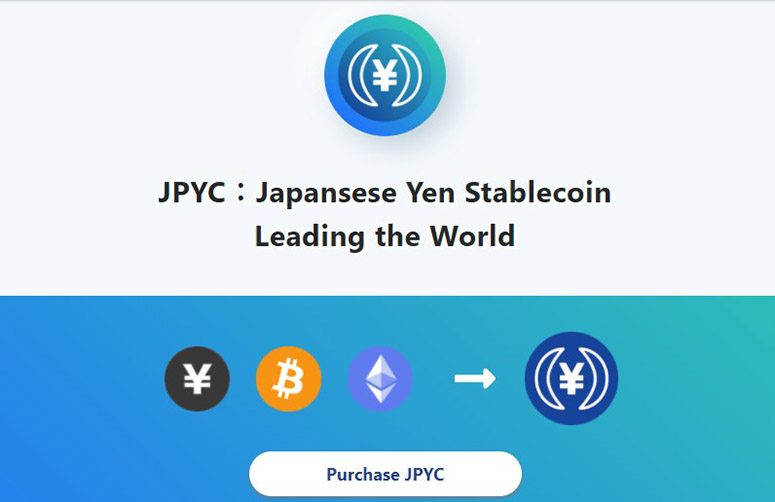
Banks in Japan are beginning to actively adopt blockchain technology. For example, the MoneyTap system, which launched with Ripple, helps financial organizations make real-time fiat money transfers through a mobile app.
Where it’s accepted
Today, 3.5 million citizens in Japan trade digital assets. This is a high level of adoption that makes the country a leader among other nations in bringing cryptocurrencies into the mainstream.
Companies across Japan are beginning to use digital assets as a means of payment. Bic Camera is a major electronics retailer that accepts bitcoins at its locations using the bitFlyer exchange. Customers who receive electricity from E-net Systems Co. can pay their bills with cryptocurrency.
Japanese crypto companies are also expanding their reach. For example, the bitFlyer exchange has operations in the United States.
All of these examples point to the widespread adoption of digital currencies in Japan. Even during the bear market of 2018, the Land of the Rising Sun remained among the top three bitcoin-using nations in the world.
Impact on trading
Japan’s Financial Services Agency (FSA) believes that cryptocurrencies in the country are most often used for speculation and investment. Rarely as a means of payment. Unlike in the U.S., where citizens are free to invest in the growing asset class, opportunities here are still severely limited. China’s crackdown on exchanges, miners and traders in May 2021 has prompted some players in the Japanese cryptocurrency market to switch to decentralized storage systems.
In July, the FSA set up a study group. Its goal is to develop new regulatory measures for decentralized finance. According to the agency, problems in the cryptocurrency market now arise due to the widespread use of DeFi companies.
Japan’s popular cryptocurrency
The local association of digital currency exchange companies compiled the top 10 most traded coins in its June 2021 report and officially posted it on its website.
| Kovanec | Number of coins | Value, million ¥ ($) |
|---|---|---|
Bitcoin (BTC)
Bitcoin is the first most kapitalizirani cryptocurrency in the world. All exchanges in the country allow trading on the BTC/JPY pair. Thanks to the Bitcoin coin, companies as well as the government have successfully started to adopt blockchain and Japanese cryptocurrencies.
Ethereum (ETH)
Traders in Asia tend to use more speculative instruments, so etherium is attracting more interest in the altcoin market. Ethereum is the second most traded in terms of trading volume after bitcoin. In Japan, these 2 digital assets are as popular as anywhere else.
Ripple (XRP)
The coin is widely accepted among Japanese cryptocurrency enthusiasts. Exchanges offer the Ripple žeton in their trading pairs. In most cases, only XRP/JPY is represented.
Now Ripple is partnering with SBI Remit (Japan’s largest money transfer company) to launch On-Demand Liqudity (ODL), an international payment system to accelerate and increase cross-border financial transactions.
Qtum (QTUM)
The coin, developed by Qtum Chain Foundation Ltd. combines the security of the Bitcoin blockchain with the flexibility of Ethereum pametne pogodbe. The project uses the Proof-of-Stake algorithm to create new blocks, which requires less power. The cryptocurrency is designed for use by large companies and a number of industries, including the financial services market and social media.
Stellar (XLM)
Coincheck began listing the Stellar Lumens (XLM) coin in November 2019. The exchange was the first company in Japan to offer the XLM token for trading on its website.
MonaCoin (MONA).
Japan’s first cryptocurrency, which was launched in December 2013. The MONA token is the result of the Litecoin hardfork. The founders created the cryptocurrency as an asset for their hash code search game, so it had a dubious reputation and was seen as a joke coin similar to DogeCoin. However, Monacoin began to gain popularity among Japanese traders and is often used to pay for everyday expenses.
NEM (XEM).
The token of the New Economy Movement is also having success in the Land of the Rising Sun. The coin is backed by a team of Japanese developers. Moreover, the XEM token and its NEM blockchain have built a reputation as a breakthrough technology. In the spring of 2021, the new Symbol network entered the market with its own XYM coin. Holders of NEM became participants in airdrop.
Japan’s national cryptocurrency
The central bank of the Land of the Rising Sun has been exploring the use of the national cryptocurrency CBDC for several years. The digital yen is currently in the testing phase.
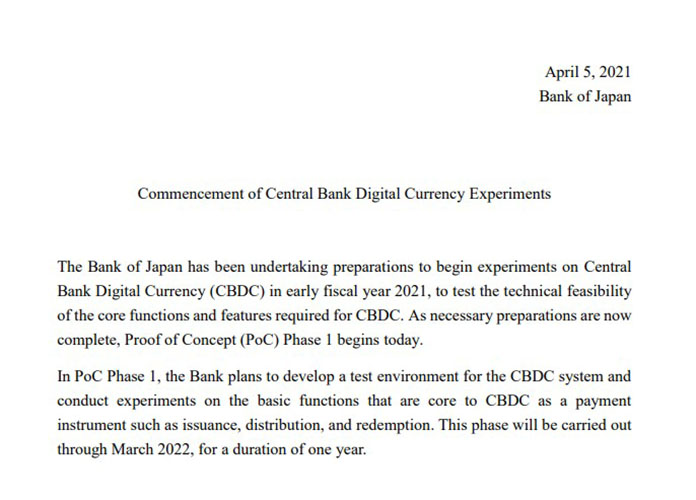
There is a possibility that with the emergence of Japan’s CBDC cryptocurrency, the blockchain and digital asset market will become more widespread. According to a report on the tokenization of the yen, the central bank is exploring ways to overcome major technical obstacles, including the inaccessibility of tokens to ordinary citizens and high energy consumption.
New promising projects
Japan, as one of the advanced countries in the world in terms of regulation and government support for digital assets, plays a key role in the history of cryptocurrency market development. Investments in the industry are already being actively utilized by major financial institutions. Statistics from the Japan Association of Digital Currency Exchange Companies indicate a significant upward trend in the number of transactions involving this asset class on the country’s leading exchanges.
Signs of market growth came after news from Rakuten, a major company, that since February tokens purchased through Rakuten Wallet can be used by customers to top up Rakuten Cash (the corporation’s e-money ecosystem) without any fees.
Another event occurred on April 28, when Nexon (a video game developer) purchased 1,717 bitcoins for about $100 million, making it the first publicly traded company in Japan to invest in digital assets. This decision may encourage other market participants to follow suit, increasing the viability of bitcoin and other coins as savings vehicles.
Largest Cryptocurrency Theft
In February 2014, digital currency exchange platform Mt.Gox was attacked by hackers. This was a turning point for the entire cryptocurrency market. One hack had a very big impact on the bitcoin community. In total, about 6% of the world’s BTC supply was stolen from the exchange. The attack on Mt.Gox is one of the largest in the history of the cryptocurrency market.
The platform’s team tried to recover the funds, but without success. After the loss of assets, the exchange became bankrupt. Confidence in the market fell to the lowest possible level.
It would be reasonable to expect the Japanese government to shut down other exchanges and tighten regulations to protect consumers. However, it didn’t. The government didn’t let Mt.Gox’s mistakes hurt the entire cryptocurrency community in Japan. Instead, it took measures to protect users.
However, this did not stop cyberattacks on Japanese exchanges. In 2018 alone, cryptocurrency platforms lost more than $600 million of their users’ funds. The National Police Department found that in the first half of 2018, there were 158 hot wallet hacks worth $540 million, with the hacking of the Coincheck platform accounting for most of this amount. As a result, ~$530 million worth of NEM (XEM) tokens were stolen. September 2018 saw another major attack on crypto exchange Zaif worth nearly $60 million.
In the second half of August 2021, the global cryptocurrency community saw the news that Japanese trading platform Liquid had been hacked, with user losses totaling nearly $80 million.
The country’s cryptocurrency exchanges
There are officially 34 cryptocurrency exchange companies registered in Japan. The members of the first class are in the table.
| Company name | Mesto |
|---|---|
Japanese exchanges host a small number of cryptocurrency pairs. The platforms mostly offer 12-15 coins, most of which are traded against the yen. Bitcoin in Japan is the most popular coin on exchanges.
Assets that are not handled by domestic companies are readily available on Binance.
Coincheck
A well-known cryptocurrency exchange that was attacked by hackers in 2018. Despite the loss of users’ digital assets, it remains on the market to this day. As of August 2021, it has a trading volume of almost $108 million.
DMM Bitcoin.
Leverage is available to customers on this exchange. Some companies have a limited number of currencies for margin trading. However, DMM Bitcoin allows leveraged trading on 12 cryptocurrency pairs.
bitFlyer
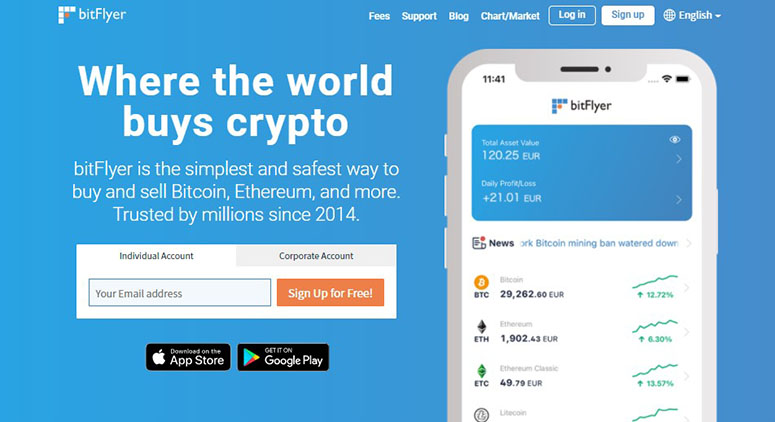
BitFlyer Lightning supports margin trading and futures trading. The company makes it possible to use not only yen, but also bitcoin for margin. BitFlyer is one of the largest exchanges in Japan in terms of trading volume, which exceeds $626 million according to the CoinMarketCap service as of August 2021.
Bit Point
BITPoint Japan is a centralized cryptocurrency exchange launched in March 2016 and based in Tokyo. It supports fiat pairs with JPY.
Bitbank
There are 19 trading pairs available on the exchange. Customers appreciate the app’s high level of security and ease of use. There is no margin trading feature on Bitbank.
Pogosto zastavljena vprašanja
💰 Are cryptocurrencies subject to taxes?
According to the law, a levy is levied on the sale of cryptoassets when the office of the transferring party is located in Japan. Profits realized from the sale of digital currencies are also subject to taxation.
😎 Why can’t anonymous coins be used in Japan?
Several organized crime groups used Monero, ZCash, and Dash. As a result, on June 18, 2018, the FSA announced that there would be a complete ban on anonymous coin trading. Japanese exchanges have since excluded Monero, Dash, Augur and ZCash from their platforms.
🏢 What are the requirements for cryptocurrency ownership for companies?
There are no restrictions on owning digital assets for proprietary investment purposes, nor on making exchange transactions unless the organization provides these services on a commercial basis.
🎌 How is mining regulated in Japan?
The mining process is not regulated as it does not fall under the definition of “exchange services”.
📄 Do I need to declare cryptocurrency?
According to the Foreign Exchange and Foreign Trade Law, if a resident or non-resident makes a transfer above 30 million yen (~$273,262) from Japan to another country or from another country to Japan, he or she must report it to the Minister of Finance.
❓ Can cryptocurrencies be inherited?
Yes. However, given the anonymous nature of digital assets, identifying and collecting them will be a significant challenge unless the private key or password is known to the heirs.
Ali je v besedilu napaka? Označite jo z miško in pritisnite Ctrl + Vnesite
Avtor: Saifedean Ammous, strokovnjak za ekonomijo kriptovalut.
